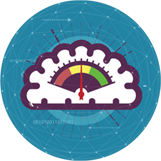Class Times:
Office Hours:
Memory is fundamental to all aspects of learning and behavior. It helps remind us to pick up dinner and where we left our keys; it acts as a repository for driving skills and the meaning of a stop sign; it also can incite flashbacks to an earlier car crash. How does the brain—in humans and non-humans alike—support mnemonic processes that give rise to such adaptive functions? How do these capacities develop across the lifespan, what problems arise, and what can we do to improve our memories? To begin to answer these questions, we will evaluate theories and evidence from behavioral experiments, brain-imaging methods, and studies of patients with memory disorders. Along the way, we will consider ongoing debates in the field, such as the role of memory suppression and the malleability of our memories.
Course Materials:
- Spring 2022 Syllabus
- Materials will be posted on Brightspace
